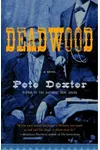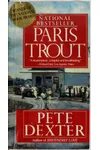Picture a gritty American storyteller who turned a near-fatal bar brawl into literary gold—meet Pete Dexter! This National Book Award winner transformed from a wild child who barely read to a novelist celebrated for his blackly funny, hard-edged tales. With a journalist’s eye and a boxer’s grit, Dexter crafts stories that dive deep into the darker corners of human nature, wrapped in sparkling wit and compassion.
The Making of Pete Dexter
Born on July 22, 1943, in Pontiac, Michigan, Pete Dexter’s early life was a whirlwind of movement. After losing his father at four, he moved with his mother to Milledgeville, Georgia, where she married a physics professor. Raised across Georgia, Illinois, and South Dakota, Dexter was more likely to shoot out windows than read novels. He stumbled into journalism after quitting a job at The Palm Beach Post in 1972 over a forced Nixon endorsement. His career as a columnist for the Philadelphia Daily News took a dramatic turn in 1981 when a column sparked a violent mob attack in South Philadelphia, leaving him with a broken back and a new calling: fiction.
Pete Dexter’s Unforgettable Stories
Dexter’s novels are raw, vivid, and laced with dark humor, often exploring violence, hypocrisy, and redemption. His breakthrough, Paris Trout (1988), a chilling tale of a bigoted store owner in 1950s Georgia, won the National Book Award for its unflinching look at racism and obsession. Deadwood (1986) reimagines the Wild West through Wild Bill Hickok’s final days, blending historical grit with mordant wit. The Paperboy (1995), set in swampy Florida, follows a journalist unraveling a murky murder, earning praise for its eerie atmosphere. God’s Pocket (1983), his debut, captures the rough-and-tumble life of a Philadelphia neighborhood with a Dickensian mix of absurdity and heart. Dexter’s style—terse, evocative, and darkly comic—draws comparisons to Cormac McCarthy and Flannery O’Connor, yet his voice is distinctly his own.
His journalism background shines through in his keen observations and dialogue that crackles with authenticity. Whether depicting a small-town murder or a frontier saloon, Dexter’s stories feel lived-in, as if he’s reporting from the scene. His ability to balance cruelty with compassion makes his characters—flawed, desperate, and human—linger long after the final page.
Why Pete Dexter Matters
Pete Dexter’s work resonates for its fearless exploration of America’s underbelly, from racial tensions to the chaos of the Wild West. His novels, adapted into films like God’s Pocket and The Paperboy, have influenced literary fiction by blending noir, historical, and Southern Gothic elements. As a writer’s writer, Dexter’s clarity and humor inspire authors tackling tough themes with grace. Living quietly on Whidbey Island, Washington, he remains a literary heavyweight whose stories remind us that beauty can emerge from brokenness.
- Born: July 22, 1943, Pontiac, Michigan
- Key Works: Paris Trout, Deadwood, The Paperboy, God’s Pocket
- Awards: National Book Award (1988) for Paris Trout
Snag Paris Trout or Deadwood and dive into Pete Dexter’s gritty, witty world of literary fiction!







